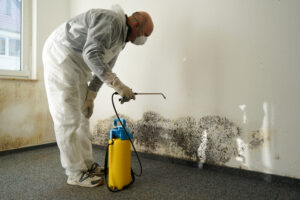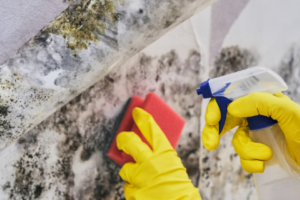Bad Kitchen Habits You Should Immediately Quit
If your family is constantly unwell, it may be the time to examine your cooking practices. Some habits may appear to be safe, yet they might be the culprit of bringing harmful bacteria into your system over time. Hence, this might finally be the time to finally move on from these harmful kitchen habits for the better. Here are some typical bad kitchen habits people often unconsciously do that may affect your health in the long run.
Washing meat in the sink
We would normally wash or rinse meat in the sink before tossing it into the pan to cook, however that is not the right way to do it. When the meat or poultry is washed and rinsed in the sink, there is a possibility that water droplets would splash about everywhere. This would lead to the risk of contamination on your utensils or plates. This habit is considered same as preparing your meat on countertops without sterilizing them beforehand.
The best thing to do is just to avoid rinsing meat. This is because the most effective technique to kill hazardous germs is just by cooking them.
Keep On Using Non-Stick Pans
Most households surely have several pans in their kitchen, especially non-stick ones. However, these pans are often coated with layer of Teflon, which may give you the Teflon flu. Heating non-stick cookware over high heat may emits harmful Teflon gases, which leads to Teflon flu or Teflon fume fever.
Despite the risk, it may be entirely impossible to get rid of the pans from your home. Hence, avoid using elevated temperatures to preheat your non-stick pan. Apart from that, be alert and replace the pans with a new one if you notice the Teflon coating becomes damaged or flaky.
Not Washing Products Before Consuming
If you love eating fruits or vegetables out of the refrigerator without caring to wash them thoroughly beforehand then it’s time to stop. This is because you would never know who or what had their hands on them before you buy them from the market and keep them in the fridge straight away. You should always keep in mind to wash every single product before eating even when you do not see any dirt on them to avoid consuming any bacteria on the foods.
Using One Knife for Everything
When you chop raw meat and vegetables with the same knife, you run the danger of transmitting E. coli or salmonella. Foodborne diseases and infections are very unpleasant to deal with. So, make sure that you do not use the same tools for each ingredient of your menu, and handle uncooked food with caution.
You may prevent food contamination by using numerous knives whenever you plan to cut a lot of things for the recipe you are about to make. If you do not own a lot of knives to segregate between types of foods, be sure to wash the blades before touching other ingredients.
Not Cleaning Cutting Board Adequately
We have always turned a blind eye and would just simply rinse the cutting board after use because “it’s not that dirty.” However, that may be one of the reasons why your immune system has been deteriorating over time. It is crucial to keep in mind to never use the same board to cut your fruits or vegetables. This is due to raw meat containing pathogenic bacteria that might contaminate your fresh vegetables.
Ensure to take some time cleaning your cutting board thoroughly after each use, since germs and food debris can get trapped in the fissures. If the cutting board has been used to cut raw meat, wash the board with hot water and soap. Also store them separately from tools that is used for cooked food.
Eating Raw Batter
Most of us would have probably experienced or done this once. The batter just looks too good that we have to get a taste of it before moving it into the oven to bake. However, it’s important to note that consumption of undercooked dough must be avoided at all costs, no matter how tempting it looks.
Raw eggs used to make the batter contain salmonella and the raw flour has E. coli, both of which can cause food poisoning. If your child loves eating raw batter while you bake, try to educate and help them understand the possible health risks that could occur.
Not Changing Sponge Frequently
The sponge that you use to wash the dishes daily is, surprisingly, the dirtiest component in your kitchen. They tend to become vectors for transmitting bacteria over your plates, pots, and utensils if it is not sanitised and changed on a regular basis.
You can avoid this by microwaving moist sponges for at least 120 seconds. This kills 99% of germs, but make sure to thoroughly dry them between uses. Aside from that, use a small container to suspend the sponge over the sink to allow the excess water to drain; otherwise, bacteria will grow in it if you leave it in the sink.


